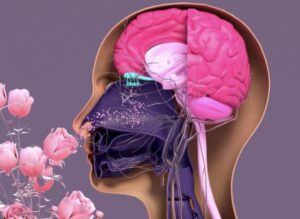Research shows that thinking negatively is not good for you
This groundbreaking research sheds light on the lingering effects of a major depressive episode and the potential challenges faced by those who have successfully recovered. The study, conducted by a team of psychologists, aimed to understand the cognitive patterns of individuals who have battled depression and how it impacts their perception of the world.

Research shows that thinking negatively is not good for you
The findings revealed that individuals who have recovered from a major depressive episode exhibit a cognitive bias towards negative information. They tend to spend more time dwelling on negative thoughts, memories, and experiences, while simultaneously allocating less attention to positive stimuli. This skewed processing of information puts them at a higher risk of relapse, as it perpetuates a cycle of negative thinking and emotional vulnerability.
The researchers believe that this cognitive bias may be a remnant of the depressive episode itself, as the brain becomes accustomed to processing negative information during the depths of the illness. Even after recovery, this bias persists, potentially making individuals more susceptible to future depressive episodes.
Dr. Sarah Thompson, the lead researcher, explains, “Our findings suggest that individuals who have experienced a major depressive episode may have a cognitive vulnerability that persists beyond the episode itself. This vulnerability can make it challenging for them to maintain a positive outlook and protect their mental well-being.”
The implications of this research are significant, as it highlights the importance of ongoing support and intervention for individuals who have recovered from depression. Therapeutic techniques that focus on cognitive restructuring and retraining may prove beneficial in helping these individuals rewire their thought patterns and develop a more balanced processing of information.
Furthermore, the study emphasizes the need for early detection and intervention to prevent relapse. By identifying individuals who are at a higher risk due to their cognitive biases, mental health professionals can provide targeted support and equip them with coping strategies to counteract negative thinking patterns.
While this research provides valuable insights into the cognitive aspects of depression recovery, further studies are needed to explore the underlying mechanisms and potential interventions. Understanding how the brain processes information differently in individuals who have recovered from depression can pave the way for innovative treatments and therapies that promote long-term mental well-being.
Ultimately, this research serves as a reminder that the journey to recovery from depression extends beyond the alleviation of symptoms. It highlights the importance of addressing cognitive biases and equipping individuals with the necessary tools to maintain a positive mindset, reducing the risk of relapse and fostering lasting mental health.
This research, conducted by the American Psychological Association, sheds light on the lingering effects of major depressive episodes and their impact on cognitive processes. The study found that individuals who have recovered from such episodes exhibit a cognitive bias towards negative information, while simultaneously showing reduced attention towards positive stimuli.
These findings have significant implications for the prevention of relapses among individuals who have previously experienced major depressive episodes. By understanding the cognitive patterns associated with depression, mental health professionals can develop targeted interventions to help individuals maintain their recovery and reduce the risk of relapse.
The study involved a comprehensive analysis of cognitive processes, utilizing various tasks and assessments to measure attentional biases. Participants who had recovered from major depressive episodes consistently demonstrated a heightened sensitivity towards negative information, such as sad or threatening stimuli. Conversely, their attention towards positive information, such as happy or rewarding stimuli, was notably diminished.
This cognitive bias towards negativity not only affects how individuals perceive and interpret the world around them but also influences their emotional well-being. The researchers suggest that this bias may contribute to the persistence of depressive symptoms and increase the vulnerability to relapse.
Understanding these cognitive mechanisms is crucial for developing effective therapeutic strategies. By targeting the cognitive biases associated with depression, therapists can help individuals reframe their thinking patterns and develop more balanced perspectives. Cognitive-behavioral therapy, for instance, can be tailored to address these biases and equip individuals with the necessary skills to challenge negative thoughts and focus on positive aspects of their lives.
Furthermore, this research highlights the importance of ongoing support and monitoring for individuals who have recovered from major depressive episodes. By recognizing the potential risk factors for relapse, mental health professionals can provide targeted interventions and support systems to help individuals maintain their recovery and prevent future episodes.
In conclusion, the American Psychological Association’s research underscores the lasting impact of major depressive episodes on cognitive processes. By identifying the cognitive biases associated with depression, this study provides valuable insights into the potential risk factors for relapse. Armed with this knowledge, mental health professionals can develop targeted interventions to help individuals maintain their recovery and lead fulfilling lives.












